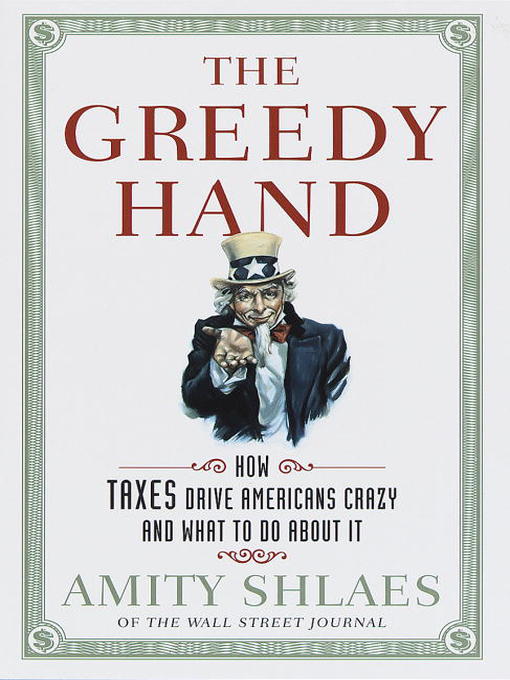
The Greedy Hand
How Taxes Drive Americans Crazy and What to Do About It
کتاب های مرتبط
- اطلاعات
- نقد و بررسی
- دیدگاه کاربران
نقد و بررسی

February 1, 1999
In a furious and furiously argued look at the effects of taxation on American life, Shlaes (Germany: The Empire Within), a Wall Street Journal editorial writer on tax policy, argues that a progressive tax structure merely acts as a brake on those who are moving up the ladder of success. She notes that American taxes--overt, hidden, intrusive, ubiquitous--once touched only a 12th of the average person's annual income but now bite into close to 40%. In place of today's byzantine tax code, Shlaes suggests either a flat tax or a simplified tax structure with lower rates and no home mortgage deduction (the latter change, she surmises, would very likely bring down interest rates for mortgages). She also calls for privatizing Social Security and favors abolition of the estate tax (arguing that the latter is a major killer of family businesses and that the rich find loopholes to avoid paying it anyway). Shlaes has nothing good to say about Medicare and, indeed, relates some awful horror stories about its shortcomings. In a chapter on school funding, she contends that the move by states to centralize school financing (as opposed to the old system whereby local property taxes funded local schools) has not brought equitable spending or improved academic performance. Whether or not readers agree with Shlaes's reform proposals, her informal, colorful report elucidates the often subtle ways taxes affect citizens' lives, from child rearing to the decision to marry, women's careers, the quality of day care, consumers' shopping habits and retirement. Agent, David Chalfant at IMG Literary; Conservative Book Club main selection; author tour.

February 1, 1999
Shlaes, an editorialist on tax policy for the Wall Street Journal, has produced a short polemic against taxes. She devotes her chapters to ten types of taxation, including job, marriage, house, baby, and death taxes, and how they affect our lives. As a fiscal (though not social) conservative, she decries taxes as taking an ever-increasing percentage of our income, as an agent of social engineering (or wealth transfer), and as unpredictable--and she's surprised that there has not been a general tax revolt owing to these problems. Shlaes saves her short list of recommendations for her summary chapter, though her case against progressive tax rates is unconvincing. Like most good Journal reporting, this book is nonscholarly and understandable to the general reader, and Shlaes has liberally interspersed interesting examples and insights throughout. An optional purchase for public libraries.--Patrick J. Brunet, Western Wisconsin Technical Coll. Lib., La Crosse

February 15, 1999
Despite the recent spate of books and oratory decrying the heavy hand of the Internal Revenue Service, Shlaes' stands out as something more than just another anti-tax, anti-government screed--even though it is clear that she does favor fewer taxes and less government. She is the "Wall Street Journal"'s lead editorial writer on tax policy and the youngest member of its editorial board, though she did take time off to research and write this book, for which she received a fellowship from the Heritage Foundation. What Shlaes effectively and colorfully illustrates are the unintended consequences of the intricate U.S. tax system. Legislation designed to protect or relieve one group often affects another in unforeseen ways. This is especially the case when taxes are used as a tool for social policy rather than for creating revenue. Generating a whole docket of injustices, Shlaes looks at taxes that affect the job, shopping, marriage, homes, children and birth, schools, success, retirement, and death. She also offers up her solution on how to streamline and reform the U.S. tax system. ((Reviewed February 15, 1999))(Reprinted with permission of Booklist, copyright 1999, American Library Association.)

























دیدگاه کاربران